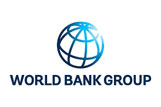
PUBLIC PROCUREMENT
&
CONCESSIONS COMMISSION- +231 0881102273
- +231 0775382251
- Help Hotline: 4357
- info@ppcc.gov.lr

Background
The Need Assessment conducted by the Government of Liberia in conjunction with the United Nations and World Bank determined that the policy, procedures and practices for awarding contracts under public procurement and concessions were not done with economy, efficiency and transparency. Hence, it did not give Government the value for money used from public funds. It was then decided that public procurement and concessions be reformed in two phases:
1) To prepare interim public procurement policy & procedures and interim guidelines for awarding concessions by the NTGL, and
2) To prepare a comprehensive public procurement and concessions law.
Contract and Monopolies Commission (CMC)
In consideration of the first phase of this decision, Article XVII of the Comprehensive Peace Agreement (CPA) signed in Accra, Ghana on August 18, 2003, established the Contract and Monopolies Commission (CMC) to oversee activities of contractual agreements undertaken by the National Transitional Government of Liberia (NTGL).
The CMC, with assistance from the Office of the European Commission in Liberia and the World Bank, prepared the Interim Public Procurement Policy and Procedures (IPPPP) as well as the Interim Guidelines for Concessions (IGC), which were endorsed by the World Bank and approved by the NTGL. The executive Order # 3 was issued to grant authority to the CMC in implementing the IPPPP and IGC. The purpose of the IPPPP and IGC was to improve the current public procurement and concessions practices in Liberia by ensuring: competition, economy, efficiency, and transparency.
Public Procurement and Concessions Commission (PPCC)
The second phase of this decision was to prepare a comprehensive public procurement and concessions law. This effort was again facilitated with the technical and financial support of the World Bank and resulted in the preparation and approval of the Public Procurement and Concessions Act (Act).
THE ACT establishes the Public Procurement and Concessions Commission (PPCC) with oversight responsibility to regulate and monitor all forms of public procurement and concessions practices in Liberia. The PPCC replaced the CMC with elaborate mandates of monitoring procuring entities to comply with the Act of 2005 for all public procurement and awarding concessions, in order to ensure economy, efficiency, transparency and to promote competition so that Government gets “value for money” in using public funds.
The World Bank, EC, UNDP and Government have demonstrated their commitments and supports for the full implementation of the Act.
A Liberia where public procurement and concessions processes are transparent, accountable, and contribute to national priorities.
To regulate, monitor, and build capacity in public procurement and concessions to ensure valve for money and promote good governance.
– Transparency, Accountability, Integrity, Professionalism, Efficiency, Service Orientation.
The objective of government procurement of inputs (goods, works, and services) is to ensure the quality, economy, efficiency, transparency, fairness, and timeliness of the acquisition of inputs. Good procurement allows the government to fulfill its obligations to citizens and visitors to the country. It is always good to purchase the right quality materials, at the right time, in the right quantity, from the right source, and at the right price.
Procurement & Concession Hub
Is a dashboard that provides businesses as well as procurement/concession practitioners with access to all procurement and concession related actions that takes place within a given annual circle.
Vendor Registry
The vendor registry enables the collection of key information from vendors that supply/render goods, works, and services for all public entities, and those information relating to each vendor are recorded into an online and offline systems for use by public procurement institutions. All vendors listed within the vendor’s registry are eligible to participate in government procurement activities.
Complaints, Appeals & Review
Is a process that involves the formal receipt of complaints/appeals, collection of evident in relations to said grievances, evaluation of such evidence and conclusion with a professional and legal resolution.
eServices Platform
Is a platform that provides services which make use of information and communication technologies (ICTs). The three main components of e-services are: service provider, service receiver and the channels of service delivery that are specifically use to provide public procurement and concession online services.
Bids Information
These are important detailed information that are related to bid/tender or information relating to any offer made by an investor, trader, or dealer to buy an asset or to compete for a contract.
No Objections
No objections detailed the necessary information about a bid/tender or information relating to any offer made by an investor, trader, or dealer to buy an asset or to compete for a contract.
Latests News






All Rights Reserved 2023 © Public Procurement and Concessions Commission (PPCC) | Executive Mansion Grounds, Capitol Hill, Monrovia, Liberia.